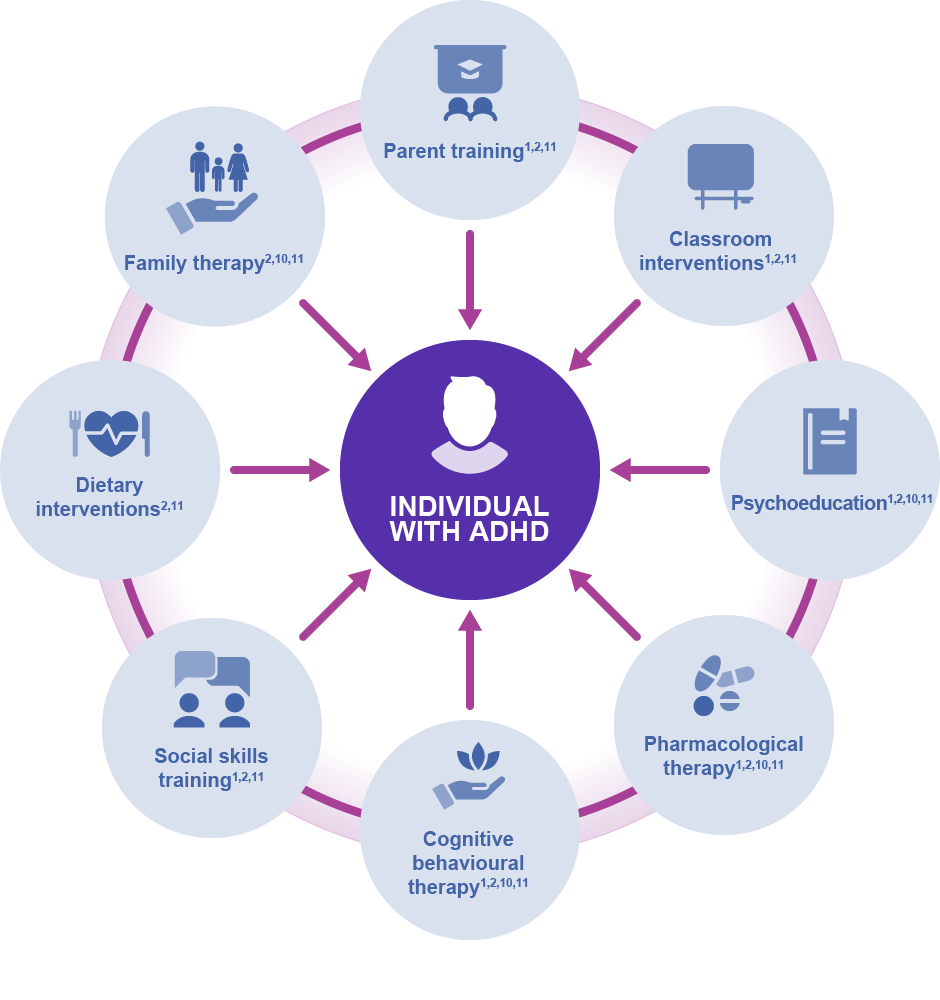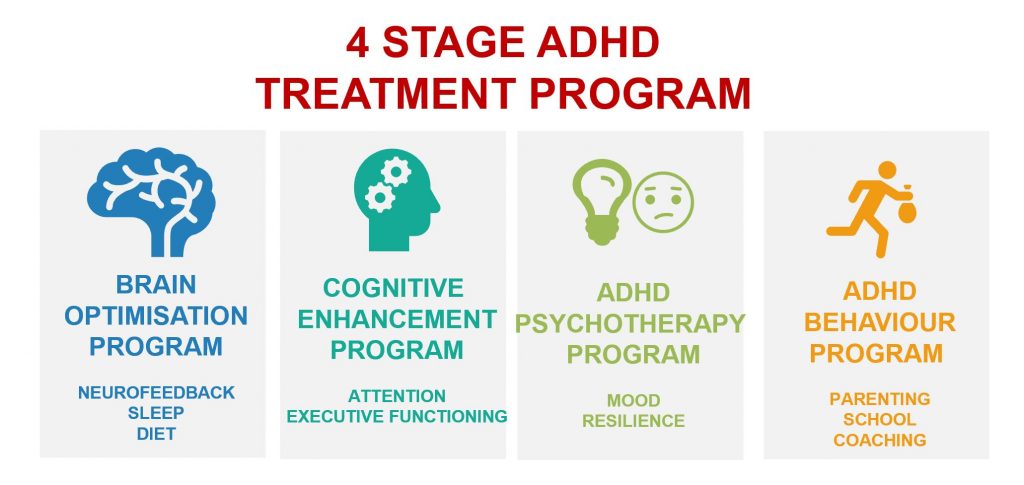When trying to find help with ADHD, it can be easy to feel like you’re all alone. There are many adults who suffer from the disorder and don’t know how they should go about managing their symptoms. They might not even understand what ADHD is in the first place! In this article, we’ll cover some of the basics and give a few tips on managing ADHD for those struggling with this condition every day.
Contents
What is ADHD?
ADHD stands for Attention Deficit Hyperactivity Disorder. Some people have a developmental condition that does not go away. It affects learning in childhood and adulthood. In fact, many people don’t realize they have ADHD until adulthood when the disorder becomes even harder to manage.
People with ADHD have symptoms that are different for each person. You might have difficulty paying attention or controlling your behavior. There are also other things, but these are the most common.

- Inability to focus or concentrate on one task at a time
- Impulsivity that causes interruptions and mistakes in daily life
- Chronic forgetfulness/procrastination – for example forgetting appointments, bills, etc. These symptoms must affect your ability to function as an adult in order for someone to diagnose them as having ADD (Attention Deficit Disorder).
- If they only affect your childhood development then it’s not likely that you truly suffer from ADHD.
ADHD Treatment for Adults

Once you have a diagnosis of ADD, the next step is to find help with managing it as an adult! There are many ways that people go about this and everyone has differing levels of success depending on their unique circumstances. Some options include:
- Being a part of support groups where others understand what you’re going through – Can be very helpful because adults with ADHD usually feel alone but meeting other people who really ‘get’ them helps combat feelings of isolation and loneliness.
- Learning how to cope better – It is easy to wrap up in your own head when you have a problem. So you should do things that make you feel better each day. For example, exercise, meditation, yoga, etc., will help you manage your feelings and symptoms better.
- Ask for help from people who can give it – In addition to self-care activities, some adults find great success in working with a therapist as well as their medical provider. There are different medications that may be helpful and therapy helps you learn how to properly communicate your needs without being demanding or rude about them!
Tips for Managing Adult ADHD
While there is no one-size-fits-all formula for managing ADHD as an adult, these are some of the most popular ways people go about it:
- Make lists – Adults with ADD often have trouble keeping track of important things such as appointments and bill due dates. To combat this, make checklists to put on your fridge or post somewhere you can see them daily so that they become a habit!
- Prioritize tasks – One thing adults with ADHD struggle with is getting overwhelmed by having too many things to do at once. Instead of tackling everything in one day give yourself smaller goals until you’re able to get through each task successfully without any distractions.
- Turn off electronics during times when you should be focusing – For example if you want to get your work finished for class or a job, turn off all cell phones and other gadgets that could distract you.
- Delegate tasks – If there are certain things at home or school/work that you can’t do on your own then ask someone else to help! It might feel embarrassing but it’s important to remember that the people around us support us no matter what. Asking for their assistance doesn’t make them think less of you; in fact, they may be happy to lend a hand if given the opportunity.
There is nothing easy about dealing with ADHD as an adult because this disorder affects nearly every aspect of daily life. However, by getting involved in local support groups, learning healthy coping skills, and reaching out for professional help when needed, you can find a way for managing ADHD and its symptoms so that they don’t get in the way of living life on your own terms.
Tips for getting organized and controlling clutter
One of the biggest struggles for adults with ADHD is keeping things organized. Some people who have ADHD can do well in their personal life, but find it more difficult to do well at work or school. Procrastination can lead to people having ADD or ADHD who have a hard time doing things. People with ADD/ADHD need to learn how to do things and not let anything control their lives. It is important to stay happy when you feel like everything is bad. You can’t change everything, so you shouldn’t get upset about it.
- The first step to getting organized is knowing where everything in your home or office belongs and putting each item back there when you’re done with it! There is a condition called ADD or ADHD. This means that you have trouble with your attention. In order to help, you should create a home base for everything in your room. This will help you pay attention better when you are at school or work. For example, if I took something out of my desk drawer at work and knew that when I got home, there would be a mess waiting for me because it would be unorganized, I might put the thing in the bin near my car before leaving work. Then I’d have it ready to go back into my desk drawer the second that I got home, and all would be right with my world again!
- This process can be easier if you create a system for yourself. You could use colored bins or containers. Put paperwork in one bin and letters in another. If you put your things in their right place each night, then it’s easier to find them. Put things away and don’t leave them on the table.
- The next step is learning how not just to put everything back after use but also to start off each day with a clean slate. It’s easier to stay organized when everything is in its place than if you have to search for what you need amid piles of clutter, right? Of course! But this means that you have to put your things away every evening before bed. You won’t want to leave them out in the open because it will make your room messy. Don’t make a mess! Before you go to work or school, make sure that there are no things on the tables and counters. And when people go home, pick up any things that fell on the floor while they were gone.
- By making this a habit, life does not have to be so complicated. Putting everything away becomes second nature rather than an arduous chore that you’re tempted to avoid doing at all costs. When you are cleaning your house, it is easiest when the only thing left to do is put away your own things. It’s easy because there are no distractions or other things.
- It can be hard to keep your focus on one task without any distraction. It is helpful to focus on the task. To do this, you should avoid distractions like social media, cell phone calls, and texts, etc.
Develop structure and neat habits—and keep them up.
It is not enough just to create structure and order in your life—you must keep that structure and order up too! If you do your laundry once per week, but leave it all on the floor on Friday night, then there will not be anything to do by Saturday morning. When you leave clothes on the floor all over your house, it can be hard to remember what you did earlier in the day. To help you remember, try doing things still left at the end of each day. Fold laundry while watching TV or put away papers as they come into your house. And when this happens, it is easy to get sidetracked doing something else more immediately gratifying instead of working on the things that are actually important.
One can solve this problem by creating a neat and tidy environment at home—and sticking to it! Having an organized living space is easier because you can find what you need quicker. You know where everything belongs. If you leave old things in one place and new things in another, soon you will have too many things. This is not good for your house or yourself.
By sticking to a schedule, however, it will be far easier to keep up with all of these things—and then some! When you don’t need to do an urgent task, then you can work on less important tasks. You can complete all of your tasks before leaving for work. You should exercise every day. In the morning, afternoon, or evening. It does not matter which you do first. It might take a little more time at first to create order in your life, but it will save you time later on when things are easier to manage. You will also have less stress.
Take Advantage of Natural Gifts To Manage ADHD

It is important to make a schedule and plan your day. This can help with managing ADHD symptoms better throughout the day. You should also try to take advantage of your strengths. For example, you could do art or play an instrument, be a good listener, or have physical talents like athleticism. Children who do these kinds of activities are less likely to feel depressed and will do better in school. They will also be less likely to drop out of high school or college.
If we consider what kind of careers are best for people like us, then there is no accounting or law enforcement. Maybe something creative, like interior design or writing? Some people have gifts that they can turn into a career. If you want, your gift might be the only thing you do. You can also use it with other things like school or something else. Even if you don’t think you are good at anything, you can learn how to do something new. That is what life is all about!
There are some things that can help people in managing ADHD better than others. For example, medication and a good sleep schedule. But an organized home will also help someone with ADHD be more productive in their own house. It may even keep them from getting into trouble outside of the house too. We can be happy if we are successful in our careers. When we are doing what we are good at, it is easier to be happy.
Conclusion
The key is to understand what triggers your ADHD symptoms, and then you can use that knowledge to manage them. If you are experiencing an episode of inattention or hyperactivity/impulsivity, try these tips out the next time it happens. You might find that anti-anxiety or anti-depression medicine helps reduce the intensity of your symptoms. Then it is a little less chaotic for everyone. Have you struggled with managing ADHD? Let us know in the comments below! We’d love to chat with you about how we might be able to help.
For more information, please contact MantraCare. ADHD is a neurodevelopmental disorder characterized by difficulty in paying attention, hyperactivity, and impulsivity. If you have any queries regarding Online ADHD Counseling experienced therapists at MantraCare can help: Book a trial ADHD therapy session


